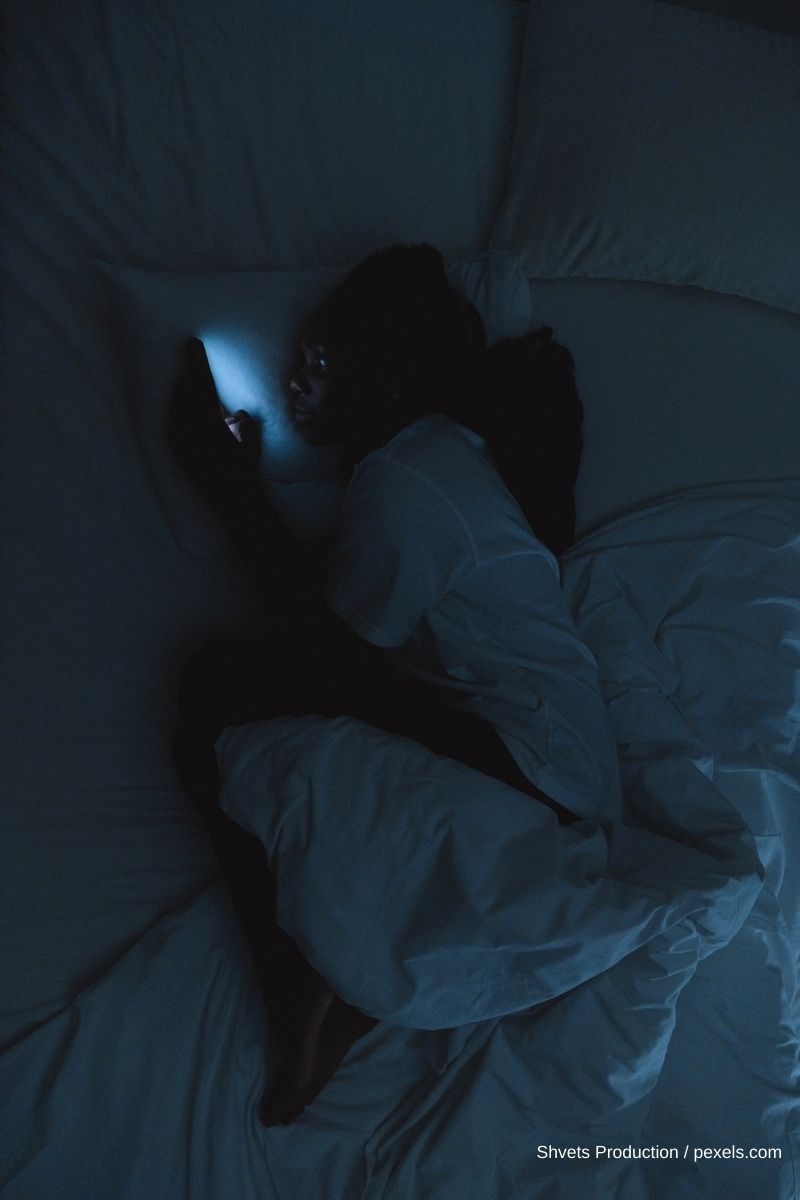How too little sleep affects body and mind

Too little sleep has slowly but surely become a widespread affliction. More and more people are complaining about insufficient or disturbed sleep – and consequently suffer from the physical and mental consequences in their everyday lives. We will tell you why you should avoid sleep deprivation for the sake of your health. We will also give you tips on how you can best achieve the goal of getting enough sleep.
Too little sleep – a new widespread disease?
 Living in the 21st century, we get less and less sleep – consequently, people are getting sicker and sicker. However, most of us do not take getting too little sleep as a serious problem. Everything else seems to be more important, and thus "the issue of getting a good night's rest" moves further and further down the list of priorities. In our modern performance-oriented society, this is no wonder: work and productivity are emphasized, whereas breaks, rest, and relaxation still do not receive the collective recognition they deserve. As a result, many people no longer allow enough time for their sleep – and that eventually takes its toll on us.
Living in the 21st century, we get less and less sleep – consequently, people are getting sicker and sicker. However, most of us do not take getting too little sleep as a serious problem. Everything else seems to be more important, and thus "the issue of getting a good night's rest" moves further and further down the list of priorities. In our modern performance-oriented society, this is no wonder: work and productivity are emphasized, whereas breaks, rest, and relaxation still do not receive the collective recognition they deserve. As a result, many people no longer allow enough time for their sleep – and that eventually takes its toll on us.
If you are frequently on social media until the late hours of the night, are often binging a TV series, or generally enjoy playing a few games on the console, you should expect your health to be affected. Chronic sleep deprivation does not just negatively affect your work life but reverberates in all areas of your life. And don't you want to enjoy your life to the fullest? Then it is time to take a serious look at the consequences of too little sleep. Put the brakes on unhealthy choices so that you can go through life relaxed and well-rested once again.
What too little sleep does with your body
8 hours of sleep is considered the ideal length for adults. However, very few of us actually reach that goal. Especially during the week, when we are stressed out from work, too little sleep becomes a problem. The reason: we need longer to wind down at night. Thus, our bedtime gets pushed back further and further. But what happens to your body when you regularly get less than 6 hours of sleep?
To feel fit and balanced, your body needs a sufficient night's rest. Especially the deep sleep phase is important for your physical recovery, as different regeneration processes take place during this time. During deep sleep, your immune system can recover and your body releases cell-regenerating growth hormones. If your night's rest is too short or interrupted, you risk that your body can no longer keep up with the repair work. Too little sleep is associated with an increased risk of many lifestyle diseases: Heart attack, stroke, diabetes...and that is just the tip of the iceberg. The risk of developing a mental illness such as depression also increases for chronic short sleepers.
How too little sleep affects your psyche
 One all-nighter is enough to cause your mood, concentration, and attention to plummet. That is because our mental fitness also depends heavily on getting enough deep sleep. During this sleep phase, our brain stores information and what we have recently learned in our long-term memory. For high school and college students in particular, too little sleep can therefore have a negative impact on grades. But even as part of the working population, you cannot afford to sit inattentively at the next meeting and miss the important discussions. Or worse, possibly cause an accident in the car on your way to work because you cannot concentrate.
One all-nighter is enough to cause your mood, concentration, and attention to plummet. That is because our mental fitness also depends heavily on getting enough deep sleep. During this sleep phase, our brain stores information and what we have recently learned in our long-term memory. For high school and college students in particular, too little sleep can therefore have a negative impact on grades. But even as part of the working population, you cannot afford to sit inattentively at the next meeting and miss the important discussions. Or worse, possibly cause an accident in the car on your way to work because you cannot concentrate.
Additionally, your interpersonal relationships also suffer greatly from your lack of sleep. You may know from personal experience that one gets irritated more quickly after a night of little sleep. Things that you usually smile away or accept with a shrug of the shoulders suddenly drive you up the wall. However, reacting impatiently and gruffly does not win you any bonus points with the people around you. On the contrary, your irritability can cause you to miss important opportunities – both professional and personal.
This really helps with sleep deprivation
By now, you are probably convinced that too little sleep is a serious problem. But how can you successfully combat sleep deprivation? For starters, it is important not to get in your own way and start setting clear priorities. If you are overworked at work, try to take it down a notch and improve your stress management. Stress is the number one killer of sleep, keeping you trapped in a negative thought carousel at night that keeps you awake for hours.
The solution: find a relaxation method that works for you personally. Meditation, yoga, and autogenic training have all been proven to be beneficial. A podcast to fall asleep to is also great for clearing your mind and helping you wind down. At the same time, work on establishing a set sleep routine. Always go to bed at the same time so that your sleep-wake cycle stabilizes, and your body can adjust to the night's rest.
Lastly, we want to remind you that sometimes it is simply because of the wrong bed system that you get too little sleep. An old, worn-out mattress and a run-down slat base make restful sleep a difficult achievement. With a comfortable bed that meets your comfort needs, you can create ideal conditions for a restful night's sleep. At Swissflex, we are dedicated to developing high-quality mattresses and slat bases that promise to help you achieve deep relaxation from head to toe. Treat yourself to the sleep comfort you deserve and finally be able to sleep soundly again.
Photo credits:
Andrea Piacquadio / pexels.com
Shvets Production / pexels.com
Monstera / pexels.com
